Colorful, easy-to-grow plants for a nectar-packed garden.

ASCLEPIAS TUBEROSA, ZONES 3 TO 9
Distinctive clusters of bright orange flowers are a must-stop destination for butterflies, especially monarchs and black swallowtails. After all, it didn’t get its name for nothing. Butterfly weed grows 1 to 2 ½ feet tall and blooms from mid- to late summer. It tolerates dry soil and prefers plenty of sunshine.
Why we love it: The showy bright orange blooms are deer resistant and drought tolerant, and butterfly weed is easy to grow from seed and super resilient—a major win!
2 Cleome
CLEOME HASSLERIANA, ANNUAL
This old-time garden favorite, also called spider flower, gets its common name from the long and threadlike flower stamens and elongated seedpods. Cultivars come in white, pink, rose or purple flowers and quickly reach 5 to 6 feet tall. Newer cultivars, between 12 and 18 inches tall, are suitable for containers.
Why we love it: Cleome is a bright, resilient flower that readily self-seeds new generations. In addition to butterflies, bees and hummingbirds also love it.
3 Pentas
PENTAS LANCEOLATA, ANNUAL
If you like butterflies, you simply must grow pentas. These bright annuals, also known as starflowers, are easy to spot from afar. Just look for the large clusters of starlike flowers in bright pinks, reds and whites. They’re full of nectar and real butterfly magnets. And aside from being frost sensitive, they’re pretty hardy. Shorter cultivars work well in pots, while taller pentas can be interspersed with other companions in beds.
Why we love it: It’s an annual that has the size and presence of a perennial.
4 Meadow blazing star
LIATRIS LIGULISTYLIS, ZONES 3 TO 8
This story is from the August/September 2019 edition of Birds & Blooms.
Start your 7-day Magzter GOLD free trial to access thousands of curated premium stories, and 9,000+ magazines and newspapers.
Already a subscriber ? Sign In
This story is from the August/September 2019 edition of Birds & Blooms.
Start your 7-day Magzter GOLD free trial to access thousands of curated premium stories, and 9,000+ magazines and newspapers.
Already a subscriber? Sign In
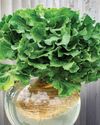
Basics of Hydroponics
Use these top tips and plant picks to have a successful soil-free garden
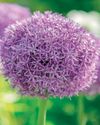
Rooted in Resilience
These hardy perennials will thrive in most zones
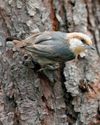
Social and Supportive
Brown-headed nuthatches take a helpful approach to raising their young

All About Owl Pellets
And why you should give a hoot about them
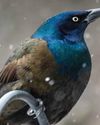
Ask the Experts
Advice from our pros about houseplants, bird feeding and more
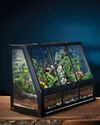
BRING THE OUTDOORS IN
Making a terrarium is about as close as you can get to a Zen DIY project. Once you have gathered the proper materials and squared away your plant selections, it's as simple as layering it all together and watching your mini ecosystem thrive. Here, I'll walk you through my foolproof process and cover all the required elements for good filtration, healthy soil, strong root growth and resistance against fungus and disease.

GROW THIS. NOT THAT
Six easy-to-grow houseplants—and six that may not be the right choice for you

Winter MAGIC
Forecasts may be frigid, but grab your binoculars because birding opportunities are still incredible
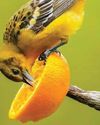
Sense or Nonsense? - Why some birds can taste and smell - but others can't
Does a porcelain berry taste like a blueberry to a gray catbird? Does a block of lard smell like frying bacon to a northern flicker? The short answer is no. While some avian species do have a well-adapted sense of taste or smell, they can't distinguish between flavors and odors the way humans can. They're not picking up every ingredient in the suet you put out, says José Ramírez-Garofalo, an ornithology researcher at Rutgers University in New Jersey and the director of Freshkills Biological Station in Staten Island, New York.

Maple Mania - Amazing facts about this fall foliage mainstay
Amazing facts about this fall foliage mainstay